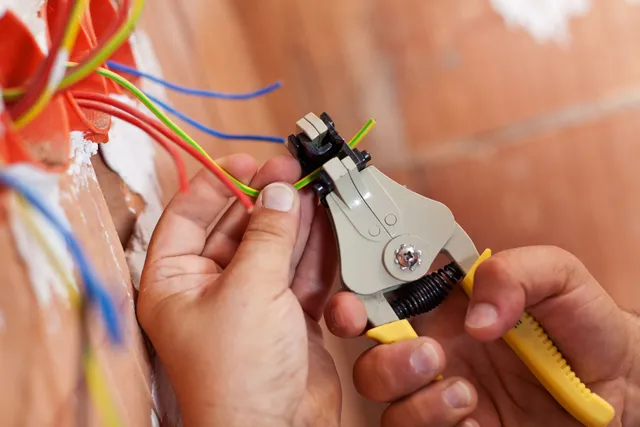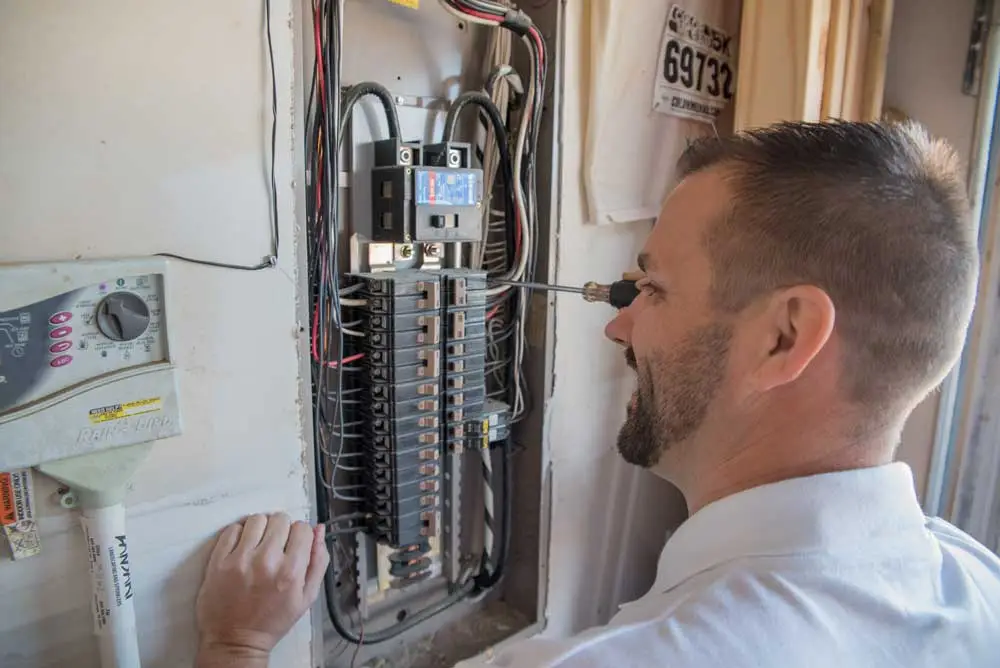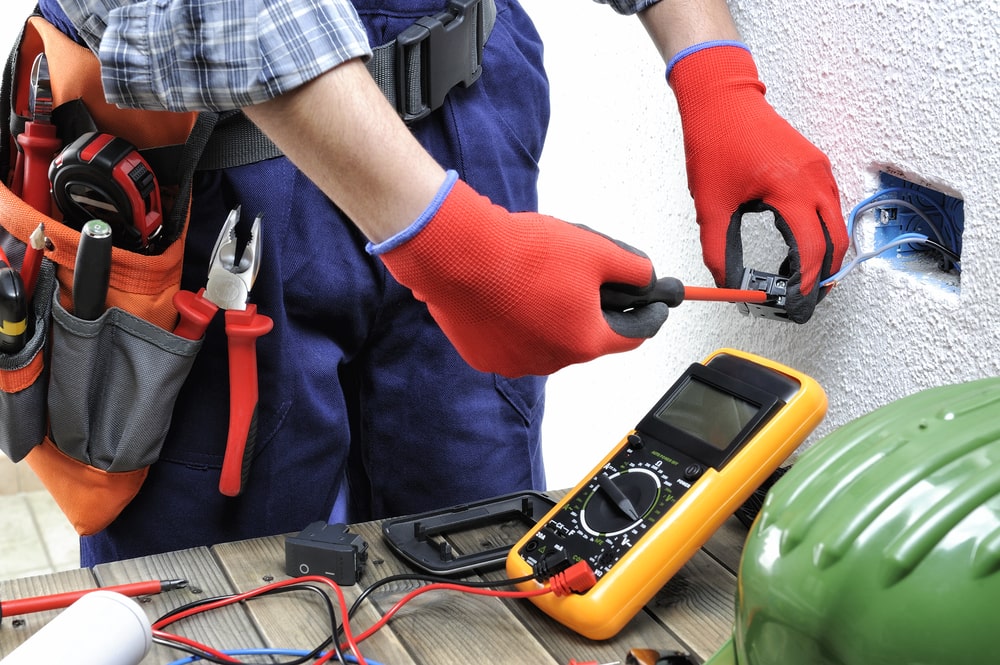
What is a Short Circuit and What You Should Know About It?
lot of people have heard about an electrical short circuit, but only very few people understand the nitty-gritty of the issue. Chances are you’ve probably heard the term countless times, but can you explain it in simple terms? Scratching your head? We expected that.
No worries. It’s okay if you don’t know much about it. After all, you’re not an electrician. However, you may want to learn a few things about it for the sake of safety. So, what is a short circuit? This is a situation in which electricity strays away from its original pathway, shortening the circuit.
When your home is wired, a pathway is provided for electric current. It flows from the source into all the wires, from which it is tapped into outlets. The flow ends in the ground. Naturally, when an electric current sees any other pathway that is shorter and has less resistance, it strays into the path fast and at a higher volume.
Of course, a short circuit is dangerous. It can destroy the electrical appliances plugged into your outlets, and cause an electrical fire or an explosion. That’s why you must know a little about it so that you can avoid it. Thankfully, many modern appliances are resistant to short circuits. They are designed to shut down immediately they sense a short circuit.
Types of Electrical Short Circuit
Normal Short Circuit
This occurs when a wire that is carrying electrical current comes in contact with a live wire or another current-carrying wire. When that happens, the resistance of the circuit drops tremendously, and the volume of current spikes dramatically.
With little or no resistance, the current gains the freedom to pass through unexpected and shorter pathways. And what happens? You may see sparks, flames, or even fire.
Ground Fault
This type of short circuit occurs when a current-carrying wire touches the grounded part of the circuit. The grounded part could be bare copper wire, a grounded part of an appliance, or a grounded metal box. When this happens, the resistance drops to zero.
However, this may not lead to flame or fire, but it is equally dangerous. Instead of sparks and fire, ground fault throws electric shocks around. If you’re standing barefoot on the floor, a ground fault could throw a fair share of electric shocks right at you.
We can tell that now that you have learned about the dangers of an electrical short circuit, you probably want to know the likely causes. You can find the causes of short circuits below.
Causes of a short circuit
Liquid Issue
In case you don’t know, water conducts electricity. So, if water finds its way into any electrical system, it could bridge the system and lead to a short circuit. This is the reason you should never handle electrical works with wet hands.
Damaged wires
To prevent short circuits, electrical wires are covered in rubber insulation. So, if two hot wires accidentally touch each other, their insulation will prevent a spark. Nails or punctures can also cause wire coating to deteriorate.
Sometimes, this insulation can chip off due to the age of the wire, and it can be chewed off by common pests like squirrels, mice, or rats. When the naked part of a hot current-carrying wire touches another naked part of a live wire, you already know the likely results.
Faulty or loose connections
When certain connections are loose, faulty, or not properly installed, a live wire may find a way to “kiss” a neutral wire. This is one of the reasons you should allow only a professional electrician to handle your electrical works. It is always smarter, safer, better, and cheaper to hire one of the best electricians Dallas offers for electrical problems. A little mistake could cause collateral damage.
Power surge
There could be a sudden power surge from the grid or an abnormal spike in the current that flows in your home’s electrical system. Imagine if this happens when no one is at home. The enormity of damage is better imagined.
Telling you about the causes of short circuits is only half of the gist. Of course, how to avoid the catastrophe is the second and more important half of the story.
Lightning strikes
In rare cases, lightning can cause a short circuit. When lightning strikes, a huge amount of current is released into the atmosphere, and it can lead to a sudden power surge.
How to prevent an electrical short circuit
You don’t have to shake with fear. We can assure you that there are several ways to keep short circuits at bay. In fact, you should encounter these issues if your home is properly wired. Electricians can install certain devices to prevent short circuits. On that note, here are some ways to prevent a short circuit in your home.”
Install units that prevent short circuits
There are several types of devices that push electrical circuits back into homes. You can see how each of them works below.
Arc-Fault Circuit Interrupter (AFCI): This unit breaks the circuit when an electrical arc is detected.
Ground-Fault Circuit Interrupter (GFCI): This device shuts off the electrical power supply if it detects a ground fault or an upsurge in the current flowing within the system.
Circuit Breaker: As its name implies, this unit breaks the circuit when an abnormal current is detected in the system. Sometimes, it breaks the flow of current when there are other problems in the circuit.
Fuse: This is a very small appliance with a very fragile metal strip. When the current increases abnormally, the metal strip will melt off, disconnecting the flow.
Get your electrical connections inspected
You may also want to get your home’s electrical connections inspected by a professional electrician. We cover the Dallas, Fort Worth, and surrounding areas for all of your electrical needs.
Some connections may be faulty or loose, and some of your electrical wires may be damaged. We suggest that you do it at least once a year.
During the inspection, damaged components are repaired or replaced, while potential faults are averted.
Switch off unused appliances when it’s raining
When it’s raining, the chances of striking lightning increase. So, it is better to switch off and unplug electrical appliances that are not in use. In case a short circuit occurs, its damages will be minimal.
Key Takeaways
In conclusion, the best way to prevent a short circuit is to get licensed electricians in Austin to handle your electrical works, get your system inspected, and install devices that can prevent a short circuit. We cover Dallas, Fort Worth, Austin and surrounding areas for all of your electrical needs.
Recent Posts

Common Electrical Problems in Older Fort Worth Homes

Why a Licensed Electrician is Essential for Home Renovations in Burleson

How to Prepare Your Irving Home for an Electrical Inspection

The Importance of Routine Electrical Inspections in Plano
Related Post
August 29 2023
Why Hire Commercial Electricians in the Modern Workspace?
Safety is essential everywhere, whether it’s your home or a commercial space. Regarding commercial places, the risks and hazards are comparatively higher. The main reason is because of using larger equipment that needs more energy to run. Moreover, commercial spaces are often closed for longer hours, so there is no supervision. This increases the risk […]
July 26 2023
A Solution to Your Problems: Reliable Electricians in DFW
A skilled electrician is important for electrical work in the Dallas-Fort Worth (DFW) area. Whether you reside in Irving, Round Rock, Arlington, or Dallas, electrical issues require expert attention to ensure safety and proper functioning. However, you may find it overwhelming to choose the right electrician for your needs with multiple options. So, this comprehensive […]
March 13 2023
Home Generators: 3 Reasons To Install One
In 2017, the greater Texas area experienced some of the worst weather on record. In the wake of Hurricane Harvey, temperatures have plunged below freezing twice, and landfalls have occurred twice. As a result, natural hazards can place you and your loved ones in a hazardous situation. As a result, it’s crucial to install a […]









